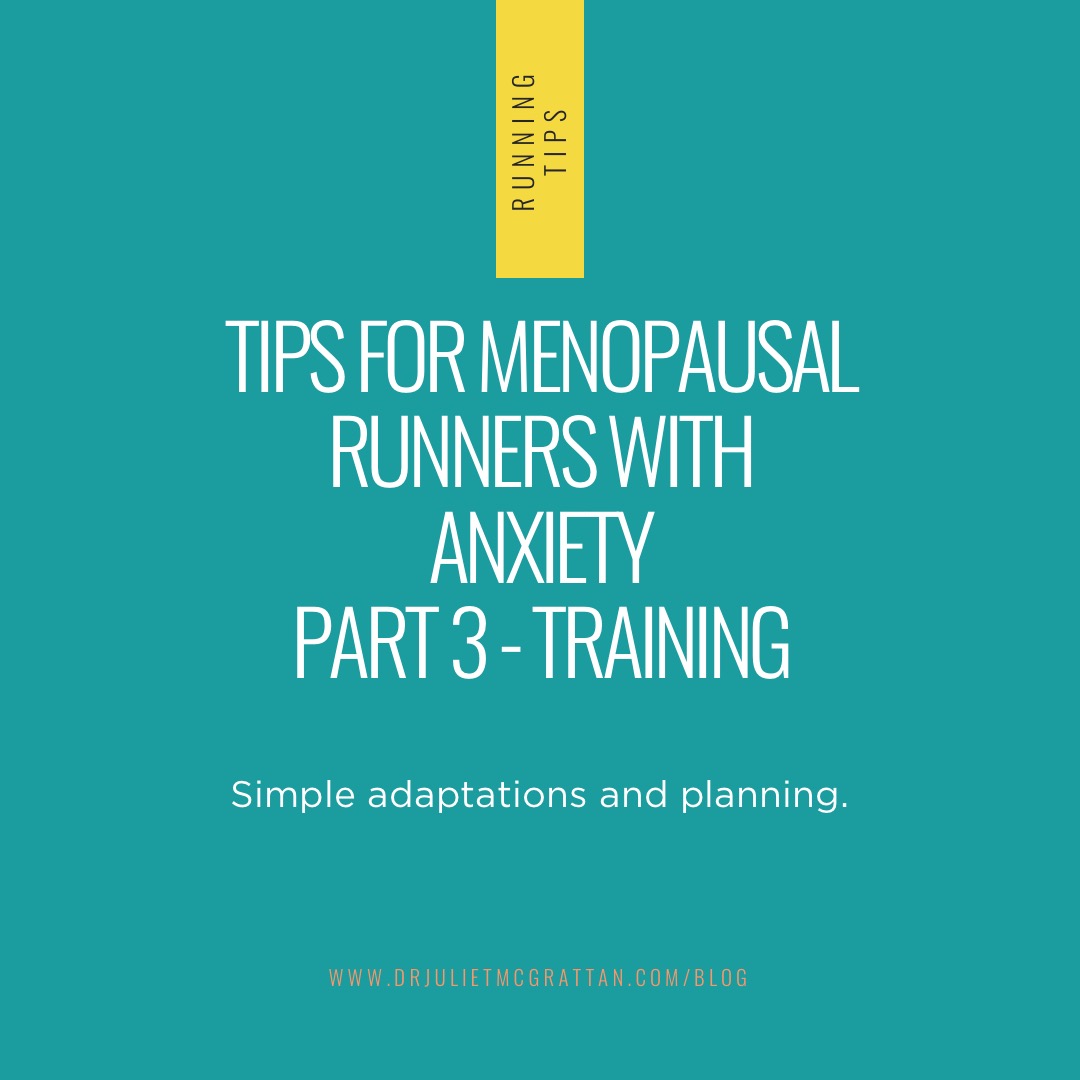This week I’m exploring how to manage your training if you’re a runner affected by menopausal anxiety. Being consistent in your training is hard for everyone but when you’re struggling with feeling on edge, unconfident and generally meh it’s even more of a challenge. So far in this series we’ve looked at how anxiety can affect your running and how good lifestyle and mindset can help. Let’s think about how we can approach training, especially if we have a goal in mind.
Please remember, this is written for runners who are getting some anxious feelings as part of their menopause, not for women with severe or long term anxiety.
There are four areas where you can make things a little easier for yourself: in your goal setting, in your plan creation, in executing your plan and in getting help. Let me explain what I mean.
Set good goals
When you’re juggling anxiety, menopause and running, it’s really important to identify what you need. Everyone is different. Some women find a big goal with a lot of challenge keeps them focused and working hard no matter what. For others, that’s the last thing they need. The pressure of that feels too much and the goal in itself causes anxiety.
You might want a distance goal, an event to prepare for or a goal to run a certain number of times a week. The end of the goal might be three months away or you might have a goal of what you want to do today. It’s all fine. Goal setting is hard when you feel anxious.
You know yourself best and you know what’s right for you. It might be enough of a challenge just to run at all. Your goal is YOUR goal and no one else’s. You don’t even have to share it. Feel comfortable with what you’re setting yourself. Running can help you with anxiety but don’t let running become the stressor.
Ensure flexibility
I don’t mean how bendy you are! No, I’m talking about making sure your training plan has space in it for the ups and downs that you’re going to experience. I talked about this in my Tips for Training for a Marathon in the Perimenopause – but my suggestion is to extend your plan and build in a couple of extra ‘menopause weeks’. That way, if you have a bad week and have to miss runs, you know your final goal is still achievable. Extra rest days are no problem. This removes stress from your training which can make you feel less anxious about it.
You might prefer a very structured plan with set things on set days from the outset but an alternative is to have a list of what you want to achieve by the end of each week. You can then look ahead, see how you feel and slot them in around other events that week, when you think you’ll feel best.
Giving yourself either/ors can work well too. So, for example, either a 5k run or a 15 minute strength session. According to your energy and anxiety levels you can decide what will be right for you at the time.
What’s your priority run?
If it’s all going haywire and you feel as if you’re losing control you need to pare it back. Ask yourself what the most important run that week is. If you could only do one, which would it be? During marathon training that will be your long run. Work everything else around that. What day is going to be best for that? How can you minimise your anxiety triggers before that run – could you avoid alcohol or caffeine, do it after that important meeting or arrange someone to run with you?
If you can manage other runs that week too then great but if not, then at least you know you have the most important run covered and you’ll continue to make progress.
Run with others
Running alone can be just what you need. The meditative effect of your feet thudding on the ground can be very therapeutic. The peace and the headspace calming. However, if your thoughts snowball, if you’re feeling demotivated or just on edge being out and about, then ask a friend to come with you.
Choosing someone who understands how you are feeling is important. You may want to share your thoughts during the run, equally, you might want to chat about everything other than how you are feeling. Having someone at your side can just give you some added security at a time when you feel vulnerable. It’s also a great way to stay motivated and to get you out there in the first place.
You can decide the type of run that will benefit you most. I talked about this last week in the Mindset tips for anxious, menopausal runners. Vigorous runs can boost mood and give you a powerful ‘feel good’ sensation but sometimes that’s not what you need and a slow chatty run might be a better fit.
Next week I’ll be looking at tips for race day. How do you cope when your anxiety is sky high? What can you do to calm you down both on the day itself but in the lead up to the day too?
Sign up for my newsletter below so you don’t miss a post.







